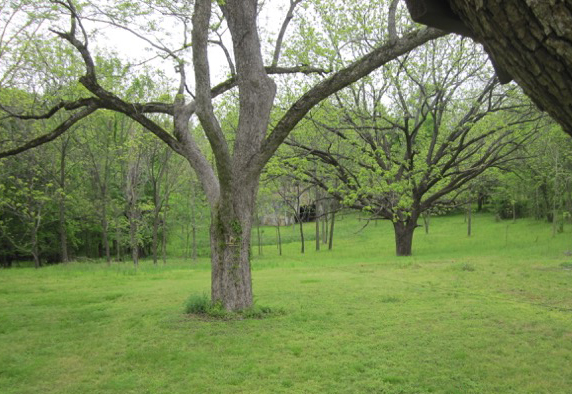Green Pastures
“Pasture” is a wonderful word. It conjures up so many pleasant connotations. I grew up in a part of a small southern town that was called “the pasture” because that is what it had been before WWII. My favorite part of Psalm 23 is the image of God having his sheep lie down in green pastures.
My kitchen sink overlooks a green pasture where I have often laid down. To watch clouds, to feel the sun, to soak up the beginnings of spring, or the endings of summer.
Yesterday morning, as I was washing dishes and watching my pasture a pair of wood ducks startled me by flying in and landing on the fat limbs of an old pecan tree. Just behind them I noticed a pair of deer grazing. And at that moment a pair of goldfinches, male and female, flew up to perch nearby.
On this morning there is a ruby throated hummingbird, drawn to the flame columbine patch at the top of the pasture. I watch him feed and then perch on the Carolina jasmine that sprawls nearby.In recent months I have seen a flock of fourteen wild turkeys pecking away in the pasture, a mighty hawk, and a large owl. I feel like Noah and the pasture is the ark.
In my French class whenever I use the word “pâturage” to talk about my pasture I am always corrected. They recommend the word “champ” or “field” because, I guess, there are no grazing cows or sheep here. Like my childhood neighborhood, it is only a former pasture, in the most literal sense. I continue to inspire correction by using this word I love both in French and in English. There may be no cows, but there are countless creatures who pasture there, including me. I’m just at a loss as to how to explain that in French.



Recent Comments